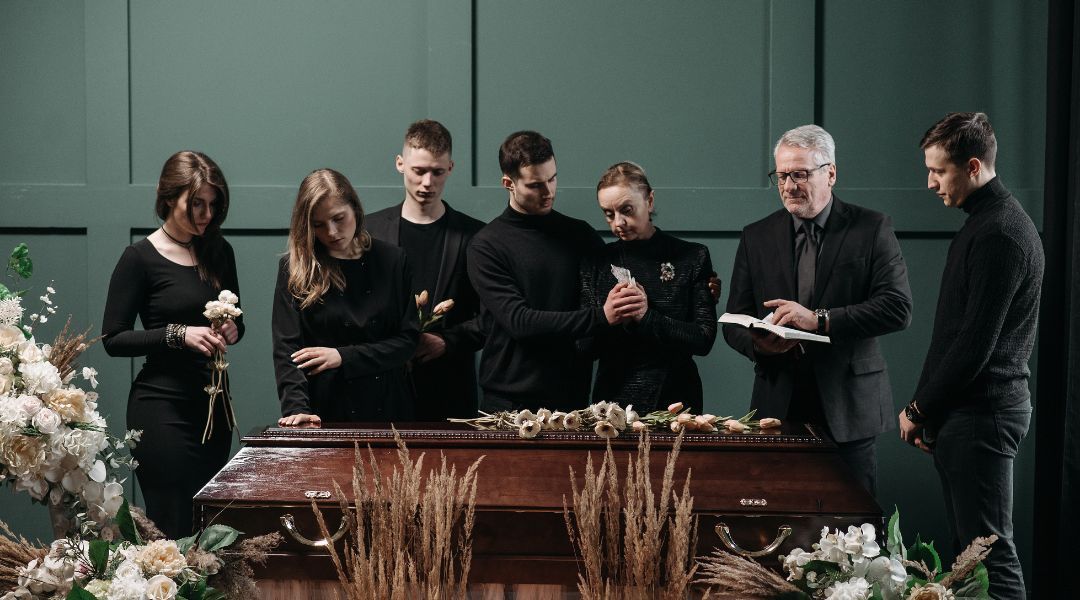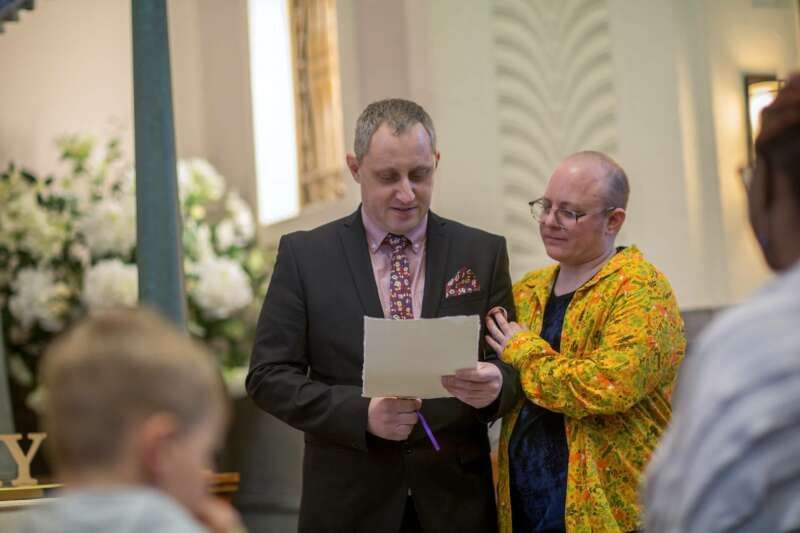How to Acknowledge a Funeral When You Can’t Attend

When you’re unable to attend a funeral, expressing your condolences can feel challenging. Yet, showing empathy in such times remains crucial. Here’s the good news: there are several respectful and thoughtful ways for you to acknowledge a loved one’s passing, even if physical presence isn’t feasible.
This guide sheds light on that journey, offering heartfelt suggestions to help navigate through these sensitive moments with grace and compassion.
Explore Local Funeral Service Options
Start your exploration by understanding a simple truth: physical presence isn’t the only way to offer condolences. Begin within your local area, seeking out a funeral service provider who can assist remotely. They may allow you to place flower arrangements on behalf of those unable to attend or facilitate message delivery from distant friends and relatives.
Also, consider the live-streaming services provided by many modern-day funeral homes. Utilizing this technology allows attendees near and far to participate in saying their goodbyes without leaving home. If religious customs play a role in bereavement rites, reach out directly for guidance regarding acceptable alternatives when attendance is not an option.
They’re often more flexible than perceived. Most importantly, show compassion throughout every interaction during these trying times. It underscores respectfulness toward grieving parties involved while reinforcing dignity surrounding loss.
Remember that each step taken helps honor the deceased’s memory even if miles separate you from the proceedings itself.
Send a Personalized Letter or Card
You might not be able to attend the funeral, but you still have options. One approach is sending a personalized letter or card. A heartfelt message shows your support for those grieving, even if distance separates you.
Choose an appropriate bereavement card first. The right words can soothe pain and offer comfort during hard times. Next, dedicate time to write your thoughts down carefully in the spaces provided.
Make sure your sympathy message signifies respect and understanding of their loss and acknowledges that grief has no limits or deadlines attached. Everyone grieves differently at different paces. Express sorrow over the death while sharing any positive memories or qualities about the deceased person respectfully.
It could lighten up moments of despair by reminding them of happy instances they had with their loved ones. Finally, post out this comforting gesture promptly, ensuring its arrival before memorial services begin, allowing enough time for it to reach its destination without rushing anyone involved in planning such events. Remembering the departed soul sparks joy and warmth amidst sadness experienced by family members.
It is part of the healing process, and it brings light to the lives of others who were impacted greatly. This remembrance is justly deserved by those who once lived among us. Indeed, a worthwhile tribute is deserving of recognition.
At the same time, it celebrates continuance through the recollection of cherished, shared experiences that are held dear. From these aspects alone, it is evidently valid that personalized letters and cards can play a significant role. They can be utilized effectively to express condolences, even when it is not possible to attend the funeral due to various reasons.
Make a Monetary Contribution in Memory of the Deceased
Helping loved ones take some financial burden off their shoulders can be a thoughtful alternative if you cannot attend the funeral. Making monetary contributions in memory of the deceased is one way to show your support, even from afar. Consider directing your funds towards causes or organizations that were close to the heart of the departed soul.
This act not only honors them but also extends their legacy into areas they cared about deeply during their lifetime. Furthermore, acknowledging these offerings seals this connection further with empathy and respect, as well as reducing any awkwardness around giving money at such a time.
Participate in Online Memorials and Services
In our digital age, you can embrace online memorials and services. These platforms allow for remote participation in honoring the deceased’s life. Many funeral homes offer live-streaming options or recorded versions of the service, letting those who couldn’t physically attend be a part of it.
You may wonder how to interact during these events. Leave thoughtful comments on memorial pages that express your condolences and share memories about lost loved ones. Remember, tone matters; maintain respect at all times while engaging digitally.
Beyond merely watching proceedings unfold from afar, there are other ways to contribute towards making an event memorable, such as sharing photos or videos related to requests from family members organizing commemorations over virtual space! This approach ensures no one feels left out due to physical distance barriers. Everyone gets their chance to say goodbye properly, even if they’re not present in person.
Attend Related Celebrations of Life Events
Attending related celebrations of life events can be a great way to express your condolences when unable to attend the funeral. Such gatherings allow you an opportunity not only to pay tribute but also to celebrate the person’s unique contributions and the joyful memories they left behind. Stages like these are often less formal than funerals, offering more personal ways to remember someone who has passed away.
They’re spaces where stories, laughter, or tears freely flow in the loving memory of their dear ones, showcasing how lives were enriched by their presence. If distance also hinders your physical participation at such memorial events, technologies prevail, and possible solutions are available. Many families livestream or record such commemorations online nowadays, which you can join remotely from wherever comfort finds you best.
On other occasions, some people may choose symbolic expressions over virtual attendance, such as releasing lanterns into night skies as collective tributes. The sky takes no limit here on what forms it could take that would honorably resonate most sincerely between yourself and the departed loved one’s family members.
Find Continued Support After the Funeral
After the funeral, you may still want to show your support. Remembering those no longer with us doesn’t end once their service concludes. Maintain contact and check in periodically on the family or close friends who are grieving.
Consider offering to share a meal together, either at home or in public settings when help is needed most. This gesture shows that you care about them and honor their loved one’s memory. Also, consider sending flowers , not just during mourning but also on special dates like anniversaries of birth or death, which might be particularly difficult for those left behind.
Flowers remain powerful symbols of life and beauty even amid loss. You could offer assistance too, perhaps by taking care of errands if they’re overwhelmed, walking pets if any exist, and other things to alleviate stress from daily routine tasks now seeming heavily burdened due to grief. Even months after burial, it matters that people remember dearly departed ones positively, filled with vibrant memories of life echoing around.
Shared stories can often lighten hearts, building stronger relationship bonds between recipients and aiding positive reminiscences over despair-filled thoughts dominating mind space every moment of awakened hours passed silently within each day.
Recognizing a funeral you’re unable to attend can be done thoughtfully. Acknowledge the loss by connecting with loved ones, sending heartfelt sympathy cards, or making donations in memory of the deceased person. Despite distance constraints, it’s vital to express your empathy genuinely and promptly for healing to commence effectively.
The post How to Acknowledge a Funeral When You Can’t Attend appeared first on Cunningham Turch Funeral Home.










